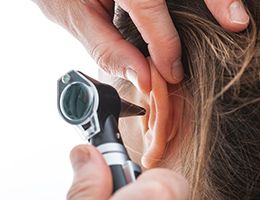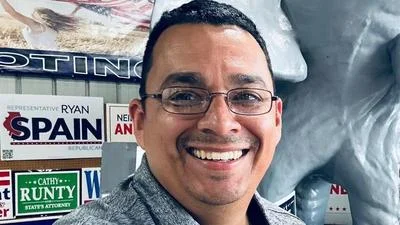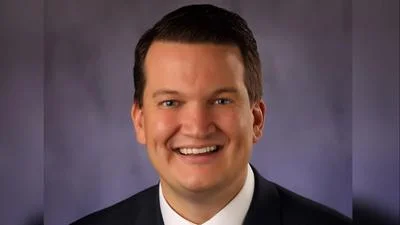C.G.H. Medical Center issued the following announcement on Jan. 27.
Hearing loss often results from a lifetime of exposure to loud noise. You can protect your hearing with a few simple steps.
If you want to hear well your whole life, you should be protecting your ears right now.
Although we often associate hearing loss with advanced age, many cases result from exposure to excessive noises. And we experience many of those sounds in our everyday lives.
Any source of loud noise has the potential to damage the inner ear and cause permanent hearing loss. Noise-induced hearing loss (NIHL) can happen anytime from infancy to old age. It can't be reversed, but it can be prevented. And it's never too early or too late to begin.
How it happens
We hear sounds when sound waves enter the ear and travel through the outer and middle ears to the cochlea in the inner ear. This hollow, snail-shell-shaped structure is filled with fluid and has nerve endings called hair cells.
The sound waves disturb the fluid in the cochlea, which stimulates the hair cells. This sends a nerve signal to the brain, which interprets the signal as a sound.
Loud noises create powerful sound waves that can damage the hair cells. Permanent damage may result from a single powerful noise or repeated exposure to less intense noises.
How serious is it?
NIHL most often causes problems with understanding speech and communicating with others.
People with hearing loss may have to strain to understand conversation, which can lead to withdrawal and loss of self-esteem. As a result, people may begin to avoid social situations altogether.
This can lead to isolation and depression. Depending on your job, hearing loss can also make it difficult to work.
What's too loud?
Noise level is measured in decibels (dB). The decibel scale ranges from 0 dB, the quietest noise the human ear can hear, to more than 180 dB, the noise level a rocket produces when it launches.
Sounds at or below 70 dB aren't likely to cause hearing loss under any circumstances, reports the National Institute on Deafness and Other Communication Disorders (NIDCD). This includes things like normal conversation or the sounds from a sewing machine.
When it comes to louder noises, the picture gets a bit fuzzier. Several factors determine whether a noise will cause permanent hearing loss.
These factors include:
- How close you are to the noise source.
- How loud the noise is.
- How long you're exposed to the noise.
The bottom line? Noises that are too loud or that last too long can damage your ears, according to the NIDCD. Frequent sources of ear-damaging noises (those 85 dB and above) include:
- Loud music (at home or in nightclubs).
- Power lawnmowers.
- Firearms for hunting or target shooting.
- Farm equipment.
- Power tools such as snowblowers, shop tools and chainsaws.
- Snowmobiles, personal watercraft and some motorcycles.
A good rule of thumb, according to the NIDCD, is that a noise is too loud if you have to yell or speak loudly to be heard by a person an arm's length away.
If you walk away from a room or activity and your ears are ringing or your hearing is muffled or distorted, you've probably done some damage.
Protect yourself
There are simple steps to help take care of your hearing:
- Avoid loud noises when you can. Either turn down the sound or step away from the noise.
- If you can't avoid the noise, wear earmuffs or earplugs to protect your ears. For example, you might need to use hearing protection if you work in a loud shop. You can buy earmuffs or earplugs at drug, hardware, music or sporting goods stores or online.
If you already have hearing loss, a doctor can help you manage it and prevent further hearing loss.
According to the NIDCD, a yes answer to three or more of these questions may mean it's time to see a doctor about your hearing:
- Do you have trouble hearing over the telephone?
- Do you have trouble following a conversation if two or more people are talking at the same time?
- Do people say you turn the TV volume up too high?
- Do you have to strain to understand conversations?
- Do you have trouble hearing if there's background noise?
- Do you often ask people to repeat themselves?
- Do many people you talk to seem to be mumbling?
- Do you misunderstand other people and respond inappropriately?
- Do you have particular trouble understanding the speech of women and children?
- Do people get annoyed because you often misunderstand what they say?
Hearing aids help many people cope with NIHL, but they don't cure it.
It's far better to prevent hearing loss in the first place. And that means protecting your ears from loud noises throughout your life.
Original source can be found here.

Source: C.G.H. Medical Center





 Alerts Sign-up
Alerts Sign-up